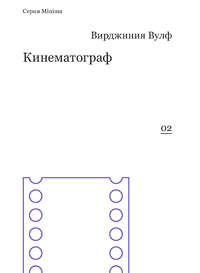 полная версия
полная версияNight and Day
“Yes, I took my little bag into the square,” said Mrs. Seal, with the self-conscious guilt of a child owning some fault to its elders. “It was really very sustaining, and the bare boughs against the sky do one so much GOOD. But I shall have to give up going into the square,” she proceeded, wrinkling her forehead. “The injustice of it! Why should I have a beautiful square all to myself, when poor women who need rest have nowhere at all to sit?” She looked fiercely at Katharine, giving her short locks a little shake. “It’s dreadful what a tyrant one still is, in spite of all one’s efforts. One tries to lead a decent life, but one can’t. Of course, directly one thinks of it, one sees that ALL squares should be open to EVERY ONE. Is there any society with that object, Mr. Clacton? If not, there should be, surely.”
“A most excellent object,” said Mr. Clacton in his professional manner. “At the same time, one must deplore the ramification of organizations, Mrs. Seal. So much excellent effort thrown away, not to speak of pounds, shillings, and pence. Now how many organizations of a philanthropic nature do you suppose there are in the City of London itself, Miss Hilbery?” he added, screwing his mouth into a queer little smile, as if to show that the question had its frivolous side.
Katharine smiled, too. Her unlikeness to the rest of them had, by this time, penetrated to Mr. Clacton, who was not naturally observant, and he was wondering who she was; this same unlikeness had subtly stimulated Mrs. Seal to try and make a convert of her. Mary, too, looked at her almost as if she begged her to make things easy. For Katharine had shown no disposition to make things easy. She had scarcely spoken, and her silence, though grave and even thoughtful, seemed to Mary the silence of one who criticizes.
“Well, there are more in this house than I’d any notion of,” she said. “On the ground floor you protect natives, on the next you emigrate women and tell people to eat nuts – ”
“Why do you say that ‘we’ do these things?” Mary interposed, rather sharply. “We’re not responsible for all the cranks who choose to lodge in the same house with us.”
Mr. Clacton cleared his throat and looked at each of the young ladies in turn. He was a good deal struck by the appearance and manner of Miss Hilbery, which seemed to him to place her among those cultivated and luxurious people of whom he used to dream. Mary, on the other hand, was more of his own sort, and a little too much inclined to order him about. He picked up crumbs of dry biscuit and put them into his mouth with incredible rapidity.
“You don’t belong to our society, then?” said Mrs. Seal.
“No, I’m afraid I don’t,” said Katharine, with such ready candor that Mrs. Seal was nonplussed, and stared at her with a puzzled expression, as if she could not classify her among the varieties of human beings known to her.
“But surely,” she began.
“Mrs. Seal is an enthusiast in these matters,” said Mr. Clacton, almost apologetically. “We have to remind her sometimes that others have a right to their views even if they differ from our own… “Punch” has a very funny picture this week, about a Suffragist and an agricultural laborer. Have you seen this week’s “Punch,” Miss Datchet?”
Mary laughed, and said “No.”
Mr. Clacton then told them the substance of the joke, which, however, depended a good deal for its success upon the expression which the artist had put into the people’s faces. Mrs. Seal sat all the time perfectly grave. Directly he had done speaking she burst out:
“But surely, if you care about the welfare of your sex at all, you must wish them to have the vote?”
“I never said I didn’t wish them to have the vote,” Katharine protested.
“Then why aren’t you a member of our society?” Mrs. Seal demanded.
Katharine stirred her spoon round and round, stared into the swirl of the tea, and remained silent. Mr. Clacton, meanwhile, framed a question which, after a moment’s hesitation, he put to Katharine.
“Are you in any way related, I wonder, to the poet Alardyce? His daughter, I believe, married a Mr. Hilbery.”
“Yes; I’m the poet’s granddaughter,” said Katharine, with a little sigh, after a pause; and for a moment they were all silent.
“The poet’s granddaughter!” Mrs. Seal repeated, half to herself, with a shake of her head, as if that explained what was otherwise inexplicable.
The light kindled in Mr. Clacton’s eye.
“Ah, indeed. That interests me very much,” he said. “I owe a great debt to your grandfather, Miss Hilbery. At one time I could have repeated the greater part of him by heart. But one gets out of the way of reading poetry, unfortunately. You don’t remember him, I suppose?”
A sharp rap at the door made Katharine’s answer inaudible. Mrs. Seal looked up with renewed hope in her eyes, and exclaiming:
“The proofs at last!” ran to open the door. “Oh, it’s only Mr. Denham!” she cried, without any attempt to conceal her disappointment. Ralph, Katharine supposed, was a frequent visitor, for the only person he thought it necessary to greet was herself, and Mary at once explained the strange fact of her being there by saying:
“Katharine has come to see how one runs an office.”
Ralph felt himself stiffen uncomfortably, as he said:
“I hope Mary hasn’t persuaded you that she knows how to run an office?”
“What, doesn’t she?” said Katharine, looking from one to the other.
At these remarks Mrs. Seal began to exhibit signs of discomposure, which displayed themselves by a tossing movement of her head, and, as Ralph took a letter from his pocket, and placed his finger upon a certain sentence, she forestalled him by exclaiming in confusion:
“Now, I know what you’re going to say, Mr. Denham! But it was the day Kit Markham was here, and she upsets one so – with her wonderful vitality, always thinking of something new that we ought to be doing and aren’t – and I was conscious at the time that my dates were mixed. It had nothing to do with Mary at all, I assure you.”
“My dear Sally, don’t apologize,” said Mary, laughing. “Men are such pedants – they don’t know what things matter, and what things don’t.”
“Now, Denham, speak up for our sex,” said Mr. Clacton in a jocular manner, indeed, but like most insignificant men he was very quick to resent being found fault with by a woman, in argument with whom he was fond of calling himself “a mere man.” He wished, however, to enter into a literary conservation with Miss Hilbery, and thus let the matter drop.
“Doesn’t it seem strange to you, Miss Hilbery,” he said, “that the French, with all their wealth of illustrious names, have no poet who can compare with your grandfather? Let me see. There’s Chenier and Hugo and Alfred de Musset – wonderful men, but, at the same time, there’s a richness, a freshness about Alardyce – ”
Here the telephone bell rang, and he had to absent himself with a smile and a bow which signified that, although literature is delightful, it is not work. Mrs. Seal rose at the same time, but remained hovering over the table, delivering herself of a tirade against party government. “For if I were to tell you what I know of back-stairs intrigue, and what can be done by the power of the purse, you wouldn’t credit me, Mr. Denham, you wouldn’t, indeed. Which is why I feel that the only work for my father’s daughter – for he was one of the pioneers, Mr. Denham, and on his tombstone I had that verse from the Psalms put, about the sowers and the seed… And what wouldn’t I give that he should be alive now, seeing what we’re going to see – ” but reflecting that the glories of the future depended in part upon the activity of her typewriter, she bobbed her head, and hurried back to the seclusion of her little room, from which immediately issued sounds of enthusiastic, but obviously erratic, composition.
Mary made it clear at once, by starting a fresh topic of general interest, that though she saw the humor of her colleague, she did not intend to have her laughed at.
“The standard of morality seems to me frightfully low,” she observed reflectively, pouring out a second cup of tea, “especially among women who aren’t well educated. They don’t see that small things matter, and that’s where the leakage begins, and then we find ourselves in difficulties – I very nearly lost my temper yesterday,” she went on, looking at Ralph with a little smile, as though he knew what happened when she lost her temper. “It makes me very angry when people tell me lies – doesn’t it make you angry?” she asked Katharine.
“But considering that every one tells lies,” Katharine remarked, looking about the room to see where she had put down her umbrella and her parcel, for there was an intimacy in the way in which Mary and Ralph addressed each other which made her wish to leave them. Mary, on the other hand, was anxious, superficially at least, that Katharine should stay and so fortify her in her determination not to be in love with Ralph.
Ralph, while lifting his cup from his lips to the table, had made up his mind that if Miss Hilbery left, he would go with her.
“I don’t think that I tell lies, and I don’t think that Ralph tells lies, do you, Ralph?” Mary continued.
Katharine laughed, with more gayety, as it seemed to Mary, than she could properly account for. What was she laughing at? At them, presumably. Katharine had risen, and was glancing hither and thither, at the presses and the cupboards, and all the machinery of the office, as if she included them all in her rather malicious amusement, which caused Mary to keep her eyes on her straightly and rather fiercely, as if she were a gay-plumed, mischievous bird, who might light on the topmost bough and pick off the ruddiest cherry, without any warning. Two women less like each other could scarcely be imagined, Ralph thought, looking from one to the other. Next moment, he too, rose, and nodding to Mary, as Katharine said good-bye, opened the door for her, and followed her out.
Mary sat still and made no attempt to prevent them from going. For a second or two after the door had shut on them her eyes rested on the door with a straightforward fierceness in which, for a moment, a certain degree of bewilderment seemed to enter; but, after a brief hesitation, she put down her cup and proceeded to clear away the tea-things.
The impulse which had driven Ralph to take this action was the result of a very swift little piece of reasoning, and thus, perhaps, was not quite so much of an impulse as it seemed. It passed through his mind that if he missed this chance of talking to Katharine, he would have to face an enraged ghost, when he was alone in his room again, demanding an explanation of his cowardly indecision. It was better, on the whole, to risk present discomfiture than to waste an evening bandying excuses and constructing impossible scenes with this uncompromising section of himself. For ever since he had visited the Hilberys he had been much at the mercy of a phantom Katharine, who came to him when he sat alone, and answered him as he would have her answer, and was always beside him to crown those varying triumphs which were transacted almost every night, in imaginary scenes, as he walked through the lamplit streets home from the office. To walk with Katharine in the flesh would either feed that phantom with fresh food, which, as all who nourish dreams are aware, is a process that becomes necessary from time to time, or refine it to such a degree of thinness that it was scarcely serviceable any longer; and that, too, is sometimes a welcome change to a dreamer. And all the time Ralph was well aware that the bulk of Katharine was not represented in his dreams at all, so that when he met her he was bewildered by the fact that she had nothing to do with his dream of her.
When, on reaching the street, Katharine found that Mr. Denham proceeded to keep pace by her side, she was surprised and, perhaps, a little annoyed. She, too, had her margin of imagination, and to-night her activity in this obscure region of the mind required solitude. If she had had her way, she would have walked very fast down the Tottenham Court Road, and then sprung into a cab and raced swiftly home. The view she had had of the inside of an office was of the nature of a dream to her. Shut off up there, she compared Mrs. Seal, and Mary Datchet, and Mr. Clacton to enchanted people in a bewitched tower, with the spiders’ webs looping across the corners of the room, and all the tools of the necromancer’s craft at hand; for so aloof and unreal and apart from the normal world did they seem to her, in the house of innumerable typewriters, murmuring their incantations and concocting their drugs, and flinging their frail spiders’ webs over the torrent of life which rushed down the streets outside.
She may have been conscious that there was some exaggeration in this fancy of hers, for she certainly did not wish to share it with Ralph. To him, she supposed, Mary Datchet, composing leaflets for Cabinet Ministers among her typewriters, represented all that was interesting and genuine; and, accordingly, she shut them both out from all share in the crowded street, with its pendant necklace of lamps, its lighted windows, and its throng of men and women, which exhilarated her to such an extent that she very nearly forgot her companion. She walked very fast, and the effect of people passing in the opposite direction was to produce a queer dizziness both in her head and in Ralph’s, which set their bodies far apart. But she did her duty by her companion almost unconsciously.
“Mary Datchet does that sort of work very well… She’s responsible for it, I suppose?”
“Yes. The others don’t help at all… Has she made a convert of you?”
“Oh no. That is, I’m a convert already.”
“But she hasn’t persuaded you to work for them?”
“Oh dear no – that wouldn’t do at all.”
So they walked on down the Tottenham Court Road, parting and coming together again, and Ralph felt much as though he were addressing the summit of a poplar in a high gale of wind.
“Suppose we get on to that omnibus?” he suggested.
Katharine acquiesced, and they climbed up, and found themselves alone on top of it.
“But which way are you going?” Katharine asked, waking a little from the trance into which movement among moving things had thrown her.
“I’m going to the Temple,” Ralph replied, inventing a destination on the spur of the moment. He felt the change come over her as they sat down and the omnibus began to move forward. He imagined her contemplating the avenue in front of them with those honest sad eyes which seemed to set him at such a distance from them. But the breeze was blowing in their faces; it lifted her hat for a second, and she drew out a pin and stuck it in again, – a little action which seemed, for some reason, to make her rather more fallible. Ah, if only her hat would blow off, and leave her altogether disheveled, accepting it from his hands!
“This is like Venice,” she observed, raising her hand. “The motor-cars, I mean, shooting about so quickly, with their lights.”
“I’ve never seen Venice,” he replied. “I keep that and some other things for my old age.”
“What are the other things?” she asked.
“There’s Venice and India and, I think, Dante, too.”
She laughed.
“Think of providing for one’s old age! And would you refuse to see Venice if you had the chance?”
Instead of answering her, he wondered whether he should tell her something that was quite true about himself; and as he wondered, he told her.
“I’ve planned out my life in sections ever since I was a child, to make it last longer. You see, I’m always afraid that I’m missing something – ”
“And so am I!” Katharine exclaimed. “But, after all,” she added, “why should you miss anything?”
“Why? Because I’m poor, for one thing,” Ralph rejoined. “You, I suppose, can have Venice and India and Dante every day of your life.”
She said nothing for a moment, but rested one hand, which was bare of glove, upon the rail in front of her, meditating upon a variety of things, of which one was that this strange young man pronounced Dante as she was used to hearing it pronounced, and another, that he had, most unexpectedly, a feeling about life that was familiar to her. Perhaps, then, he was the sort of person she might take an interest in, if she came to know him better, and as she had placed him among those whom she would never want to know better, this was enough to make her silent. She hastily recalled her first view of him, in the little room where the relics were kept, and ran a bar through half her impressions, as one cancels a badly written sentence, having found the right one.
“But to know that one might have things doesn’t alter the fact that one hasn’t got them,” she said, in some confusion. “How could I go to India, for example? Besides,” she began impulsively, and stopped herself. Here the conductor came round, and interrupted them. Ralph waited for her to resume her sentence, but she said no more.
“I have a message to give your father,” he remarked. “Perhaps you would give it him, or I could come – ”
“Yes, do come,” Katharine replied.
“Still, I don’t see why you shouldn’t go to India,” Ralph began, in order to keep her from rising, as she threatened to do.
But she got up in spite of him, and said good-bye with her usual air of decision, and left him with a quickness which Ralph connected now with all her movements. He looked down and saw her standing on the pavement edge, an alert, commanding figure, which waited its season to cross, and then walked boldly and swiftly to the other side. That gesture and action would be added to the picture he had of her, but at present the real woman completely routed the phantom one.
CHAPTER VII
“And little Augustus Pelham said to me, ‘It’s the younger generation knocking at the door,’ and I said to him, ‘Oh, but the younger generation comes in without knocking, Mr. Pelham.’ Such a feeble little joke, wasn’t it, but down it went into his notebook all the same.”
“Let us congratulate ourselves that we shall be in the grave before that work is published,” said Mr. Hilbery.
The elderly couple were waiting for the dinner-bell to ring and for their daughter to come into the room. Their arm-chairs were drawn up on either side of the fire, and each sat in the same slightly crouched position, looking into the coals, with the expressions of people who have had their share of experiences and wait, rather passively, for something to happen. Mr. Hilbery now gave all his attention to a piece of coal which had fallen out of the grate, and to selecting a favorable position for it among the lumps that were burning already. Mrs. Hilbery watched him in silence, and the smile changed on her lips as if her mind still played with the events of the afternoon.
When Mr. Hilbery had accomplished his task, he resumed his crouching position again, and began to toy with the little green stone attached to his watch-chain. His deep, oval-shaped eyes were fixed upon the flames, but behind the superficial glaze seemed to brood an observant and whimsical spirit, which kept the brown of the eye still unusually vivid. But a look of indolence, the result of skepticism or of a taste too fastidious to be satisfied by the prizes and conclusions so easily within his grasp, lent him an expression almost of melancholy. After sitting thus for a time, he seemed to reach some point in his thinking which demonstrated its futility, upon which he sighed and stretched his hand for a book lying on the table by his side.
Directly the door opened he closed the book, and the eyes of father and mother both rested on Katharine as she came towards them. The sight seemed at once to give them a motive which they had not had before. To them she appeared, as she walked towards them in her light evening dress, extremely young, and the sight of her refreshed them, were it only because her youth and ignorance made their knowledge of the world of some value.
“The only excuse for you, Katharine, is that dinner is still later than you are,” said Mr. Hilbery, putting down his spectacles.
“I don’t mind her being late when the result is so charming,” said Mrs. Hilbery, looking with pride at her daughter. “Still, I don’t know that I LIKE your being out so late, Katharine,” she continued. “You took a cab, I hope?”
Here dinner was announced, and Mr. Hilbery formally led his wife downstairs on his arm. They were all dressed for dinner, and, indeed, the prettiness of the dinner-table merited that compliment. There was no cloth upon the table, and the china made regular circles of deep blue upon the shining brown wood. In the middle there was a bowl of tawny red and yellow chrysanthemums, and one of pure white, so fresh that the narrow petals were curved backwards into a firm white ball. From the surrounding walls the heads of three famous Victorian writers surveyed this entertainment, and slips of paper pasted beneath them testified in the great man’s own handwriting that he was yours sincerely or affectionately or for ever. The father and daughter would have been quite content, apparently, to eat their dinner in silence, or with a few cryptic remarks expressed in a shorthand which could not be understood by the servants. But silence depressed Mrs. Hilbery, and far from minding the presence of maids, she would often address herself to them, and was never altogether unconscious of their approval or disapproval of her remarks. In the first place she called them to witness that the room was darker than usual, and had all the lights turned on.
“That’s more cheerful,” she exclaimed. “D’you know, Katharine, that ridiculous goose came to tea with me? Oh, how I wanted you! He tried to make epigrams all the time, and I got so nervous, expecting them, you know, that I spilt the tea – and he made an epigram about that!”
“Which ridiculous goose?” Katharine asked her father.
“Only one of my geese, happily, makes epigrams – Augustus Pelham, of course,” said Mrs. Hilbery.
“I’m not sorry that I was out,” said Katharine.
“Poor Augustus!” Mrs. Hilbery exclaimed. “But we’re all too hard on him. Remember how devoted he is to his tiresome old mother.”
“That’s only because she is his mother. Any one connected with himself – ”
“No, no, Katharine – that’s too bad. That’s – what’s the word I mean, Trevor, something long and Latin – the sort of word you and Katharine know – ”
Mr. Hilbery suggested “cynical.”
“Well, that’ll do. I don’t believe in sending girls to college, but I should teach them that sort of thing. It makes one feel so dignified, bringing out these little allusions, and passing on gracefully to the next topic. But I don’t know what’s come over me – I actually had to ask Augustus the name of the lady Hamlet was in love with, as you were out, Katharine, and Heaven knows what he mayn’t put down about me in his diary.”
“I wish,” Katharine started, with great impetuosity, and checked herself. Her mother always stirred her to feel and think quickly, and then she remembered that her father was there, listening with attention.
“What is it you wish?” he asked, as she paused.
He often surprised her, thus, into telling him what she had not meant to tell him; and then they argued, while Mrs. Hilbery went on with her own thoughts.
“I wish mother wasn’t famous. I was out at tea, and they would talk to me about poetry.”
“Thinking you must be poetical, I see – and aren’t you?”
“Who’s been talking to you about poetry, Katharine?” Mrs. Hilbery demanded, and Katharine was committed to giving her parents an account of her visit to the Suffrage office.
“They have an office at the top of one of the old houses in Russell Square. I never saw such queer-looking people. And the man discovered I was related to the poet, and talked to me about poetry. Even Mary Datchet seems different in that atmosphere.”
“Yes, the office atmosphere is very bad for the soul,” said Mr. Hilbery.
“I don’t remember any offices in Russell Square in the old days, when Mamma lived there,” Mrs. Hilbery mused, “and I can’t fancy turning one of those noble great rooms into a stuffy little Suffrage office. Still, if the clerks read poetry there must be something nice about them.”
“No, because they don’t read it as we read it,” Katharine insisted.
“But it’s nice to think of them reading your grandfather, and not filling up those dreadful little forms all day long,” Mrs. Hilbery persisted, her notion of office life being derived from some chance view of a scene behind the counter at her bank, as she slipped the sovereigns into her purse.









